Humanities/Arts Exam > Humanities/Arts Notes > Political Science Class 11 > Cheat Sheet: Legislature
Cheat Sheet: Legislature | Political Science Class 11 - Humanities/Arts PDF Download
Why Do We Need a Parliament?
The Parliament is the cornerstone of democratic political processes, serving as more than just a law-making body. It is a platform for action, including walkouts, protests, demonstrations, unanimity, concern, and cooperation. A genuine democracy is inconceivable without a representative, efficient, and effective legislature, which holds representatives accountable and forms the basis of representative democracy.
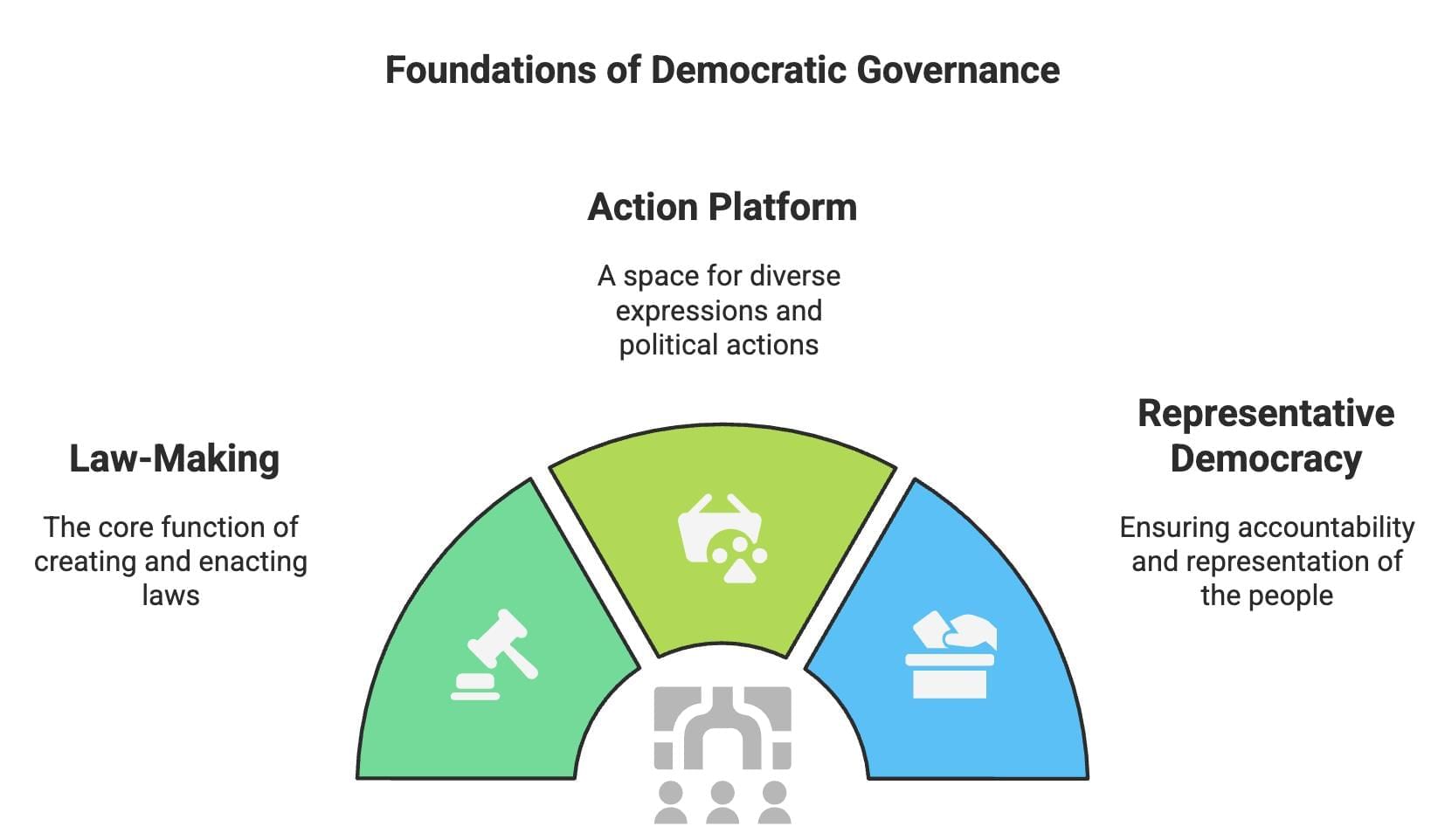
Bicameral Legislature
Overview
The Indian Parliament is a bicameral legislature consisting of two houses:
- Rajya Sabha (Council of States)
- Lok Sabha (House of the People)
States can opt for a unicameral or bicameral legislature. States with bicameral legislatures include:
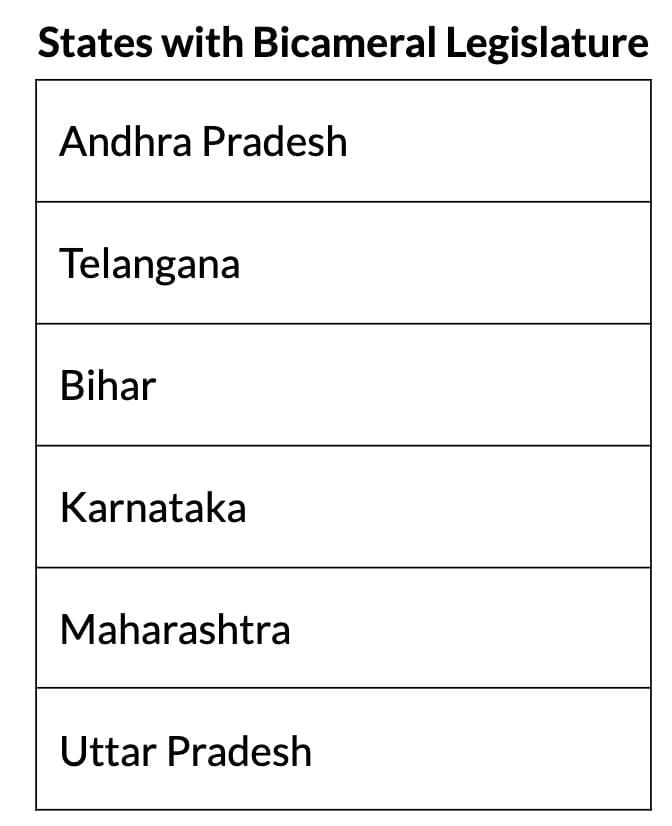
Advantages of Bicameral Legislature
- Provides representation to diverse sections and geographical regions, especially in large, diverse countries.
- Ensures double-checking of decisions, as bills and policies are discussed by both houses.
Rajya Sabha
- Representation: Represents India’s states; indirectly elected by members of State Legislative Assemblies.
- Term: Members serve six years, can be re-elected; one-third of seats are elected every two years.
- Permanent House: Never fully dissolved.
- Nominated Members: Twelve members nominated by the President.
- Principles of Representation:
- Symmetrical Representation: Equal representation regardless of state size or population.
- Population-Based Representation: States with larger populations have more representatives.
Lok Sabha
- Representation: Directly elected by people through universal adult suffrage in 543 constituencies.
- Election Process: The country is divided into territorial constituencies with roughly equal populations; each constituency elects one representative.
Functions of Parliament
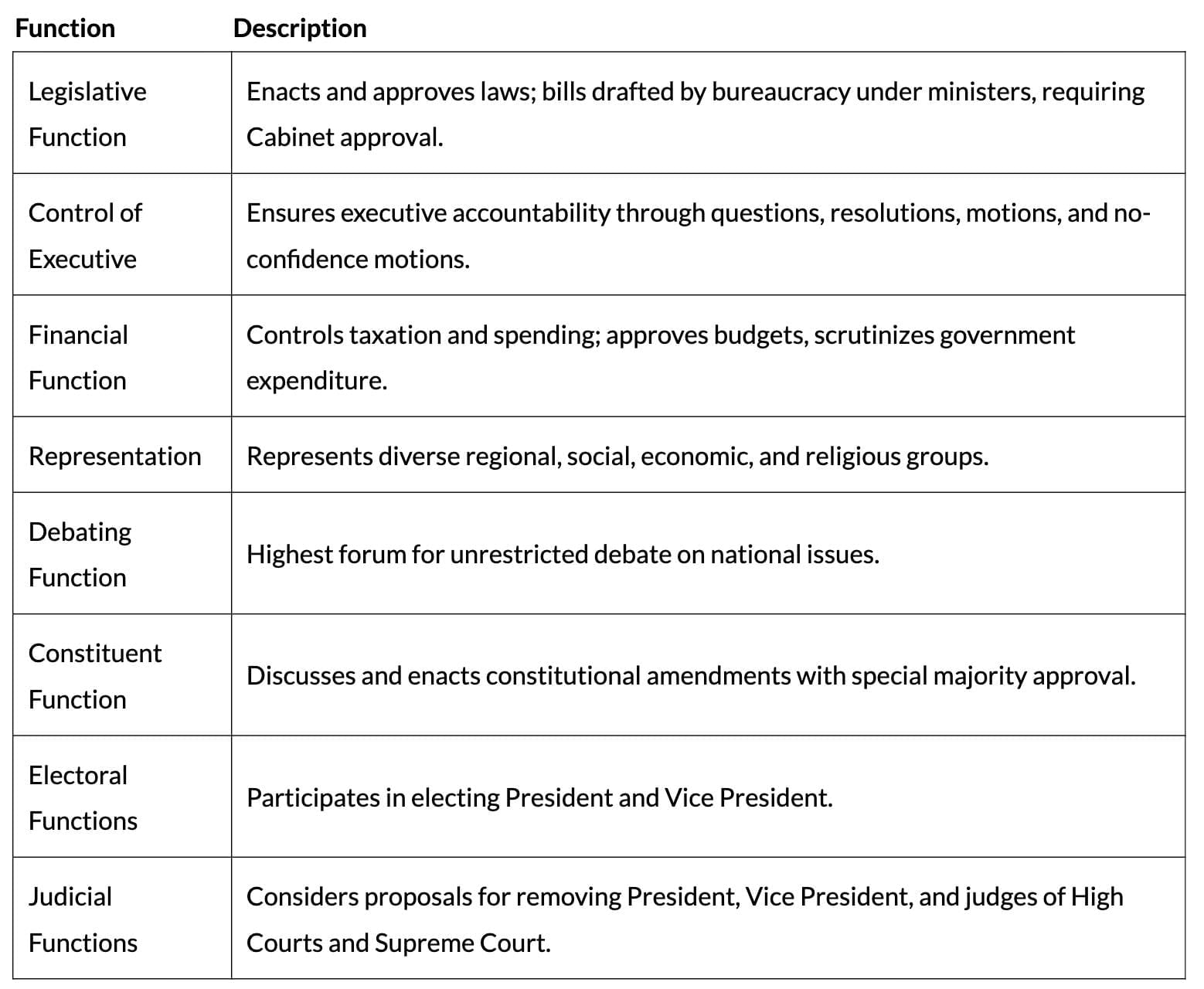
Powers of Lok Sabha
- Enacts laws on Union and Concurrent Lists; introduces and passes money and non-money bills.
- Approves taxation, budgets, and financial statements; controls executives via questions and motions.
- Approves constitutional amendments and emergency proclamations.
- Elects President and Vice President; participates in judge removal.
- Establishes committees and considers their reports.
Powers of Rajya Sabha
- Approves non-money bills, suggests amendments to money bills.
- Approves constitutional amendments; controls executive via questions and motions.
- Participates in the election and removal of the President, Vice President, and judges.
- Special Powers:
- Protects state powers; approves transfer of State List matters to Union/Concurrent Lists.
- Initiates the Vice President removal procedure.
How Parliament Makes Laws
Types of Bills
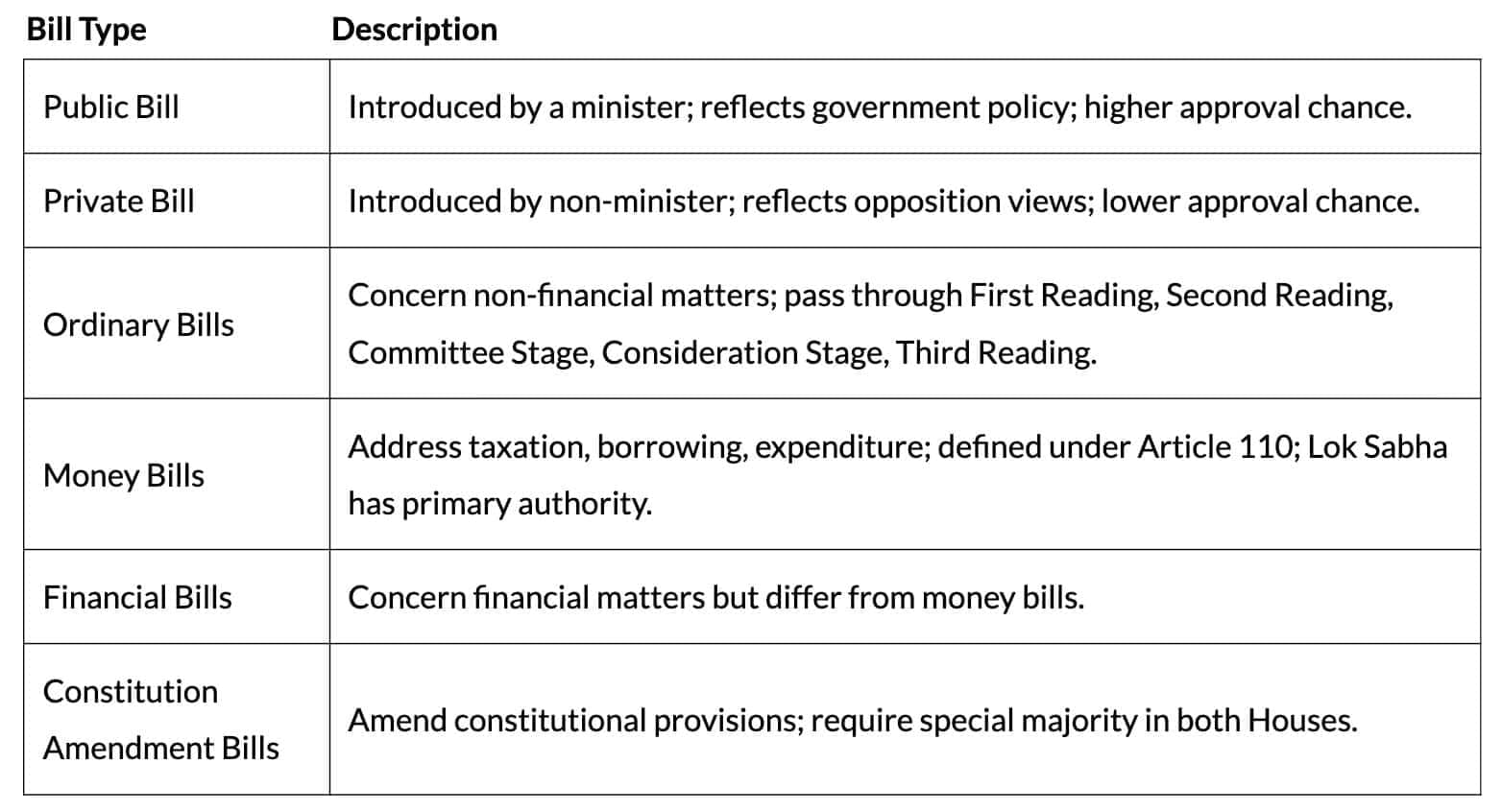
Legislative Process
- Ordinary Bills: Pass through five stages in first House; second House may pass, amend, reject, or keep pending. Deadlocks resolved via joint session called by President.
- Money Bills: Lok Sabha approves; Rajya Sabha suggests amendments, but Lok Sabha decides. Sent to the President for assent, veto, or reconsideration.
How Parliament Controls the Executive
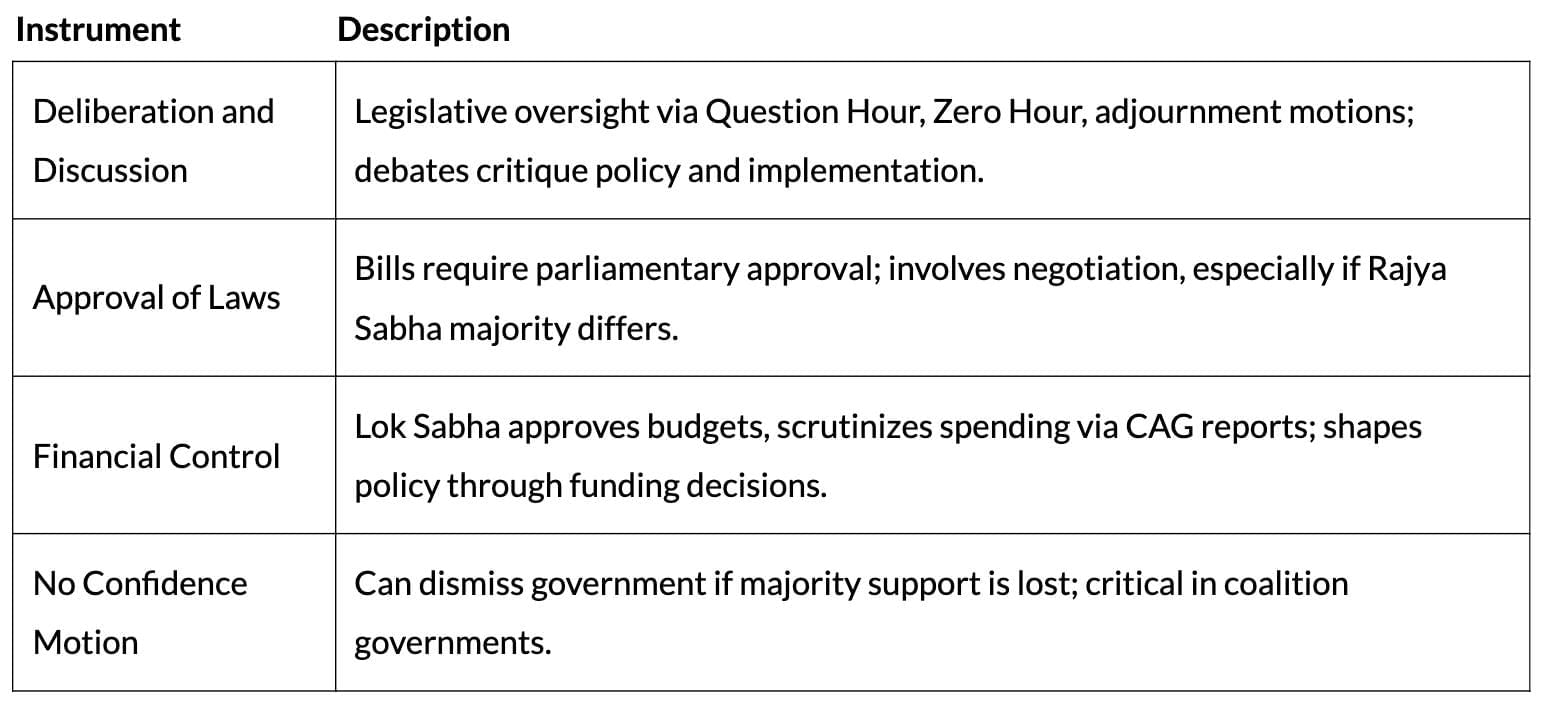
How Parliament Regulates Itself
- Presiding Officers: Speaker (Lok Sabha) and Chairman (Vice-President, Rajya Sabha) regulate proceedings for orderly, meaningful debates.
- Anti-Defection Law: Enacted via 52nd (1985) and 91st Amendments; prevents defection (e.g., voting against party, leaving party).
- Defection: Occurs if a member disobeys party instructions, votes against party, or voluntarily leaves party membership.
The document Cheat Sheet: Legislature | Political Science Class 11 - Humanities/Arts is a part of the Humanities/Arts Course Political Science Class 11.
All you need of Humanities/Arts at this link: Humanities/Arts
|
43 videos|268 docs|39 tests
|
FAQs on Cheat Sheet: Legislature - Political Science Class 11 - Humanities/Arts
| 1. Why is a Parliament necessary in a democratic system? |  |
Ans. A Parliament is essential in a democratic system as it represents the will of the people, provides a forum for debate and discussion, and ensures accountability of the government. It plays a crucial role in making laws, scrutinizing the executive, and protecting the rights of citizens.
| 2. What are the two houses of the Indian Parliament? |  |
Ans. The Indian Parliament consists of two houses: the Lok Sabha (House of the People) and the Rajya Sabha (Council of States). The Lok Sabha is the lower house, while the Rajya Sabha is the upper house, each having distinct functions and powers.
| 3. What are the primary functions of the Indian Parliament? |  |
Ans. The primary functions of the Indian Parliament include making laws, representing the electorate, overseeing the executive branch, approving the budget, and discussing national issues. It also has the power to amend the Constitution and ratify international treaties.
| 4. How does the Lok Sabha differ from the Rajya Sabha in terms of powers? |  |
Ans. The Lok Sabha has greater powers compared to the Rajya Sabha, particularly in financial matters, as money bills can only be introduced in the Lok Sabha. Additionally, the Lok Sabha has the authority to dissolve the government, while the Rajya Sabha cannot be dissolved.
| 5. How does Parliament control the executive branch? |  |
Ans. Parliament controls the executive branch through various means, including questioning government officials during sessions, conducting debates, and passing no-confidence motions. This oversight ensures that the executive is accountable to the legislature and, by extension, to the public.
Related Searches
















